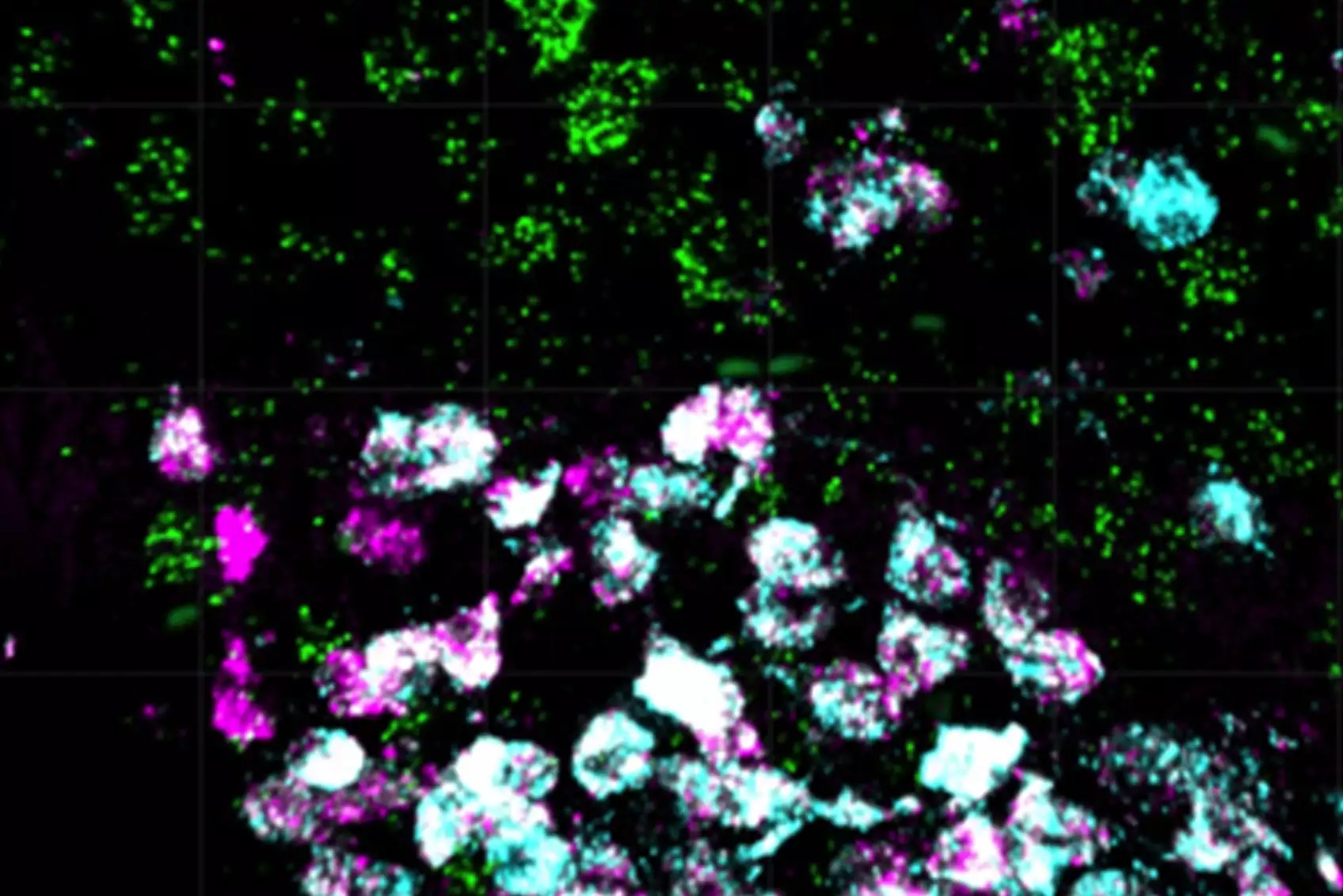Scientists have found a small group of brain cells that control how much we eat and how our weight changes. This discovery could help create better treatments for obesity in the future.
Researchers at the Max Planck Institute for Metabolism Research identified specific nerve cells called PNOC/NPY neurons in the hypothalamus region of mouse brains. When active, these cells make mice eat more food and gain weight. The same cells exist in human brains too.
Using advanced genetic and molecular tools, scientists analyzed these neurons at the single-cell level. They found that only about 10% of these PNOC/NPY cells have receptors for leptin, a hormone made by fat tissue that normally tells our brain to stop eating.
“It was surprising that such a small group of nerve cells specifically leads to obesity,” said Marie Holm Solheim, the study’s first author.
When researchers removed the leptin receptors from just this small cluster of brain cells in mice, the animals ate more and gained weight. This shows how crucial these few cells are in the brain-body connection that regulates weight.
Similar Posts
The discovery highlights how the brain precisely controls our metabolism through specific neural circuits. This understanding points toward more targeted approaches to treating obesity.
“We hope that drugs that act on this specialized group of nerve cells will offer promising alternative therapies,” said Professor Jens Brüning, who led the study. “However, there is still a long way to go before these can be used.”
This research comes as obesity affects millions worldwide. Current treatments don’t work for everyone, and many cause unpleasant side effects. Precision medicine for obesity, targeting specific brain cells rather than using broad-acting drugs, could help those who don’t respond to existing options.
Related research from the University of Gothenburg, published on May 27, 2025, identified specific nerve cells in the brain stem that control how weight-loss drugs like semaglutide work without causing nausea. This further shows how scientists are mapping the brain’s control over eating and weight.
The Max Planck Institute previously published research on what they called the “dessert stomach” phenomenon. They found that certain brain cells drive sugar cravings even when we feel full, explaining why we sometimes have room for dessert after a big meal.
Scientists will continue studying these specialized neurocircuits of appetite to identify more potential targets for obesity treatments. This personalized approach to obesity could eventually lead to more effective treatments with fewer side effects.
While promising, developing drugs that can safely target these specific brain cells will take years of additional research before they reach patients.



















